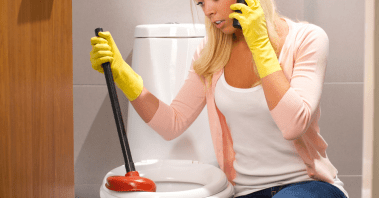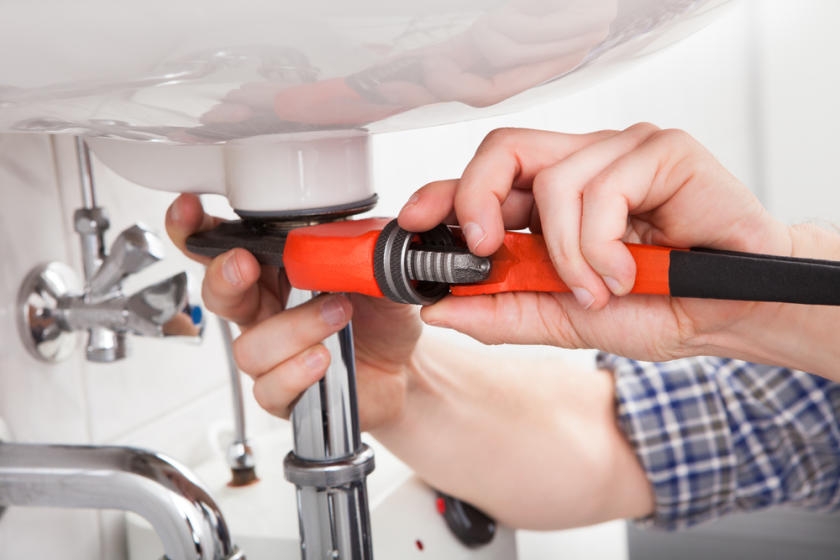Steps to Fix Emergency Plumbing with Effective Fixes Until Help Arrives
Steps to Fix Emergency Plumbing with Effective Fixes Until Help Arrives
Blog Article
Listed here underneath you'll find more excellent content relating to What to Do While Waiting for an Emergency Plumber.

Plumbing emergencies can strike any time, creating anxiety and potential damage to your home. Whether it's a burst pipeline, a clogged up drainpipe, or a leaking faucet, knowing just how to take care of the circumstance until a specialist plumbing professional shows up can save you from further complications. This write-up gives necessary emergency plumbing pointers to aid you alleviate damage and regain control throughout a plumbing crisis.
Switch off the Water
The primary step in any pipes emergency situation is to turn off the water supply. For local problems, such as a leaking tap or bathroom, turn off the shutoff near the fixture. In the case of a major leak or ruptured pipeline, situate your home's primary water shut-off valve and transform it off right away. Knowing the place of these valves ahead of time can save useful time during an emergency situation.
Address Little Leaks with Momentary Repairs
Tiny leakages can quickly come to be significant troubles if left unattended. Use these momentary fixes till professional aid shows up:
While these repairs aren't irreversible, they can assist decrease water loss and damage.
Unclog Drains Pipes Safely
A stopped up drainpipe can be a frustrating and untidy concern. Here's just how to tackle it:
If these methods don't function, stay clear of using excessive pressure, as it might get worse the blockage.
Manage Overflowing Toilets
An overflowing bathroom can create prompt chaos. Here's what you ought to do:
Turn off Your Water Heater
In specific emergencies, such as a burst pipe, it's wise to shut off your water heater. This prevents overheating or damages to the device when water quits moving. Shut off the power supply to the water heater (electrical or gas) and let it cool down to stay clear of prospective hazards.
Momentarily Stop a Ruptured Pipeline
A burst pipeline can result in substantial water damage in mins. To alleviate the concern:
Call an expert plumbing instantly to address the trouble completely.
Manage Frozen Pipeline Meticulously
In cooler climates, frozen pipes are a typical emergency. If you think a frozen pipeline:
Protect against Additional Damage
Taking fast action to decrease damages can save you money and time over time. Below's exactly how:
. Have an Emergency Situation Plumbing Set
Prepare a basic plumbing emergency situation set to take care of minor concerns efficiently. Your package should consist of:
Having these devices available can make a substantial difference in your capability to take care of emergencies.
Know When to Call an Expert.
While quick fixes can aid briefly, particular plumbing problems call for immediate expert focus. Call a plumber if:.
Immediately contacting a specialist guarantees the problem is solved properly and protects against further problems.
Final thought.
Pipes emergency situations can be overwhelming, but with the best understanding and devices, you can take care of the circumstance properly till help arrives. By shutting off the water system, attending to tiny leakages, and making use of temporary fixes, you can reduce damage and keep your home safe. Keep in mind, these ideas are momentary remedies; constantly consult a certified plumbing to handle the root cause of the problem. Preparation and quick thinking are your best allies in any plumbing emergency.
8 Helpful Tips for Managing Plumbing Emergencies at Home
If your plumbing system hasn’t failed once, wait for it because almost everyone has a story to tell. Sometimes, it could be simple emergencies such as a leaking pipe, a blocked cistern, or even a big burst pipe. In situations like this, you need to have some handy tips to save you some money and from possible damages.
Take care of minor issues early.
Sometimes, you could have avoided an emergency by taking proactive measures while it was still early. Some major plumbing emergencies can be a result of an ignored minor issue. We recommend that you have items like plumbing tapes and other related items. A plumbing tape can allow you to manage minor leaks before the plumber arrives.
Cut off the water supply.
This tip is essential in almost any type of leakage problem. For problems like minor leakages in the toilet or kitchen, turn off the supply that takes water to the affected pipes. If the leakage is a major pipe, you must shut off the supply valve to the entire building. This will help you avoid flooding your home and neighbors if you share a flat.
Know your plumbing system
Folks typically move into a new apartment without understanding the water supply around the building. This can prove disastrous if a water emergency arises and the plumber is far away. The previous tip will prove useless if you don’t practice this one. More importantly, know where your water shut-off valve is located – you’ll need that knowledge to prevent potential home floods.
Have some common handy tools
There are lots of plumbing emergencies that you can handle without hiring a plumber. That’s why you must keep some tools available always. Some tools that you can use to fix simple plumbing emergencies easily include plumbing tapes, screwdrivers, thread seal tapes, plungers, pliers, tape measures, and rubber gloves.
Insulate your pipes from cold
You’ll save yourself from many plumbing expenses if you protect your water pipes from the cold. This is because of the harmful effects that cold weather can have on your pipes. During winter, your pipes can burst from being overly expected to freezing temperatures. So, make sure insulators are there to keep the pipes working correctly.
Avoid practices that will clog your toilet.
Many people indulge in practices that can damage the plumbing system of the entire building. One of these is when they use their toilet to dispose-off garbage. They flush all kinds of things, such as paper towels, bandages, hairs, female sanitary products, etc., down the toilet. This will block your toilet in the long run, incurring unnecessary expenditures. Dump such waste in the trash instead.
Check your dials regularly.
Sometimes, there could be leakages in your home without noticing them in time. So, constantly monitor your water meter dial. If the dial is reading when there is nobody using water, this is an indicator that there is leaking. Check for leaks immediately. Call a plumber as soon as possible if you can’t find any.
https://www.constructionplacements.com/8-helpful-tips-for-managing-plumbing-emergencies-at-home/

I am very fascinated with What to Do While Waiting for an Emergency Plumber and I'm hoping you enjoyed our blog post. Please take the time to distribute this page if you enjoyed reading it. Kudos for your time. Please come by our blog back soon.
Call Report this page